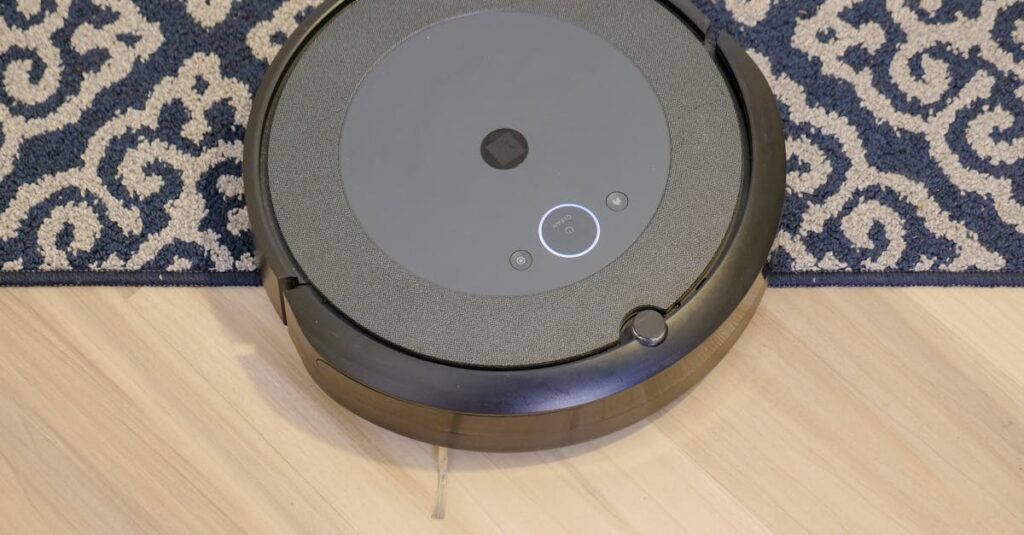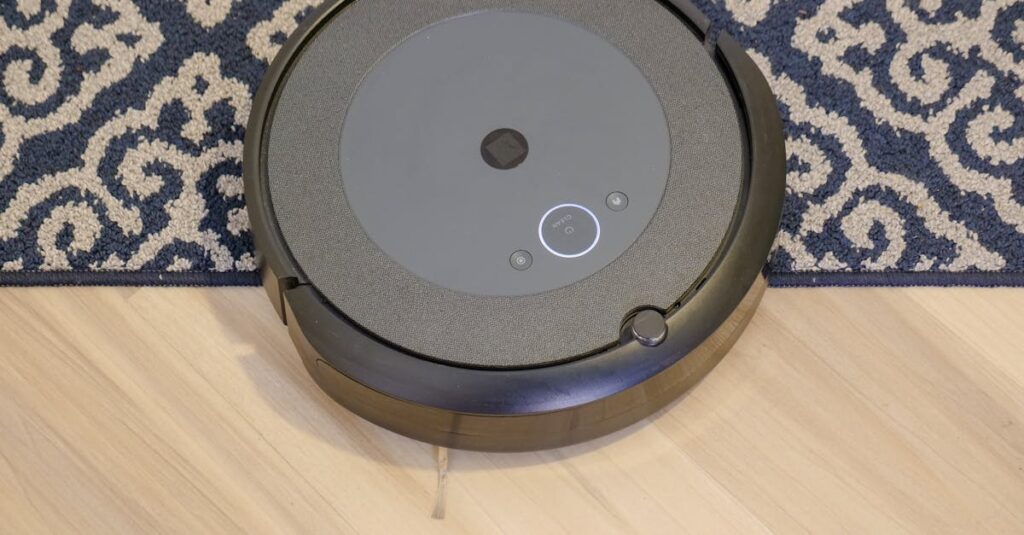Table of Contents
ToggleImagine walking into your home and having it respond to your every whim. Smart panels are the modern-day magic wands that turn this dream into reality. They’re not just fancy gadgets; they’re the brain behind your home’s operations, controlling everything from lighting to security with a simple tap or voice command.
Overview of Smart Panels for Homes
Smart panels act as central hubs for home automation systems. They integrate various technologies, allowing users to manage lighting, heating, security, and entertainment seamlessly. Controlling devices becomes effortless with simple taps or voice commands, enhancing convenience and efficiency.
Many smart panel models include touch screens that display user-friendly interfaces. Homeowners can monitor energy usage, adjust settings, and receive alerts about security issues or maintenance needs. Such features contribute to an overall improved living experience, offering peace of mind and energy savings.
Brands like Google Nest and Amazon Echo offer compatible smart panels that connect to a range of devices. These integrations provide flexibility, allowing users to customize their home automation setup. Smart panels often support multiple communication protocols, like Wi-Fi and Zigbee, ensuring compatibility with various smart products.
Additionally, some smart panels feature scheduling capabilities. Users can pre-set preferences to automate daily routines effectively. A scheduled routine could include dimming the lights or adjusting thermostat settings during specific times, promoting energy efficiency and enhancing comfort.
Adoption of smart panels continues to grow as more homeowners recognize their benefits. Statista reports that by 2025, the global smart home market is expected to value over $135 billion. This projected growth reflects the increasing demand for intelligent home solutions, including smart panels.
Emphasizing security, many smart panels include built-in cameras and motion sensors. These features enable real-time surveillance and alerts, increasing the safety of homes. Investing in smart panels leads to a more secure, energy-efficient, and comfortable living environment.
Benefits of Smart Panels
Smart panels offer numerous advantages for modern homeowners. They enhance control, automation, and overall comfort in residential spaces.
Energy Efficiency
Smart panels significantly improve energy efficiency. They allow users to schedule lighting and heating according to their routines. With real-time data on energy consumption, homeowners can track usage and make informed decisions. Many panels support the integration of energy-efficient devices, optimizing overall performance. Smart panels also include features like adaptive lighting, which adjusts brightness based on natural daylight. By reducing unnecessary energy use, these panels help create a more sustainable living environment.
Cost Savings
Cost savings are another important benefit of smart panels. Smart automation leads to reduced energy bills through efficient management of appliances and systems. Users can set schedules to minimize electricity use during peak hours. Additionally, many smart panels send alerts for maintenance needs, preventing costly repairs or replacements. Homeowners can take advantage of utility company incentives for energy efficiency when using smart panels. These financial benefits make smart panels an appealing option for anyone looking to lower household expenses.
Types of Smart Panels
Smart panels come in various types, each designed to enhance efficiency and functionality in homes. Understanding these types helps homeowners choose the right solutions for their specific needs.
Solar Smart Panels
Solar smart panels integrate solar energy technology into home energy management. These panels harness sunlight, converting it into usable electricity. Homeowners benefit from reduced reliance on traditional power sources. Many solar smart panels also include monitoring features to track energy production. This allows users to optimize their energy consumption and maximize savings. Some models offer battery storage options, enabling power use during non-sunny hours. As a result, homeowners can achieve greater energy independence while contributing to environmental sustainability.
Smart Electrical Panels
Smart electrical panels focus on managing and distributing power throughout a home. These panels enhance monitoring capabilities, offering real-time insights into electricity usage. Users can track individual appliance consumption, enabling informed decisions about energy efficiency. Many smart electrical panels include features for remote control and alerts for unusual activity. These panels improve safety by identifying electrical issues before they escalate into significant problems. By providing a comprehensive view of energy distribution, smart electrical panels empower homeowners to optimize their setups for convenience and cost savings.
Features to Consider
Smart panels offer various features that enhance usability and efficiency in home automation. Homeowners should prioritize connectivity options and user interfaces when choosing the right smart panel for their needs.
Connectivity Options
Smart panels support multiple connectivity options to ensure compatibility with various devices. Wi-Fi connections enable seamless integration with home networks, while protocols like Zigbee offer low-power alternatives for smart devices. Homeowners may also find options like Z-Wave useful, especially for home security systems. Each connectivity type provides flexibility, allowing users to customize their smart home setups further. Some advanced models include the ability to connect directly to 4G or 5G networks, ensuring reliability even during Wi-Fi outages. Keeping these connectivity features in mind guarantees a more responsive and adaptable home automation experience.
User Interfaces
User interfaces play a crucial role in the functionality of smart panels. Intuitive touch screens are common, allowing easy navigation and quick access to various settings. Voice command capabilities enhance usability, enabling hands-free control in busy households. Customizable dashboards help users prioritize the information they find most relevant, displaying energy usage, security alerts, and more at a glance. Accessibility features add value, ensuring all family members can interact with the panel. Eye-catching designs and layouts also contribute to the overall user experience, making interaction enjoyable and efficient. Understanding these interface options ensures homeowners select smart panels that best fit their lifestyle.
Installation Process
Installing smart panels involves several key steps to ensure optimal functionality. First, it’s essential to identify the right location for the panel, considering accessibility and existing wiring. An ideal spot will have a power source and be centrally located for best control over the home’s systems.
Next, homeowners must turn off the power at the circuit breaker before beginning any installation work. This step enhances safety and prevents electrical issues during setup. After ensuring power is off, they should mount the smart panel securely to the wall, using brackets or screws as necessary.
Wiring connections follow, with the need to connect the panel to existing electrical systems. It’s important to follow the manufacturer’s instructions precisely during this process. Many smart panels require a neutral wire, which is integral for powering the device.
After connecting the wires, it’s time to power the panel on and configure the settings. Homeowners will typically need to connect the panel to their home Wi-Fi network. This connectivity allows integration with other smart devices for seamless control.
Finally, it’s wise to test the system thoroughly to verify all functionalities work as intended. Homeowners can check lighting controls, security functions, and any other integrated features. Regular updates from the manufacturer will keep the panel secure and functional, so users should periodically check for software updates.
With proper installation, smart panels offer enhanced control over home automation systems, maximizing energy efficiency and security across the home.
Smart panels represent a significant leap in home automation technology. By integrating various systems into a single hub, they empower homeowners to manage their environments with ease and efficiency. The benefits of enhanced control, energy savings, and improved security make smart panels an attractive investment for modern households.
As the smart home market continues to grow, adopting these innovative solutions will likely become a standard practice. With the right smart panel, homeowners can enjoy a more comfortable and sustainable living experience. Embracing this technology not only simplifies daily routines but also contributes to a greener future.









